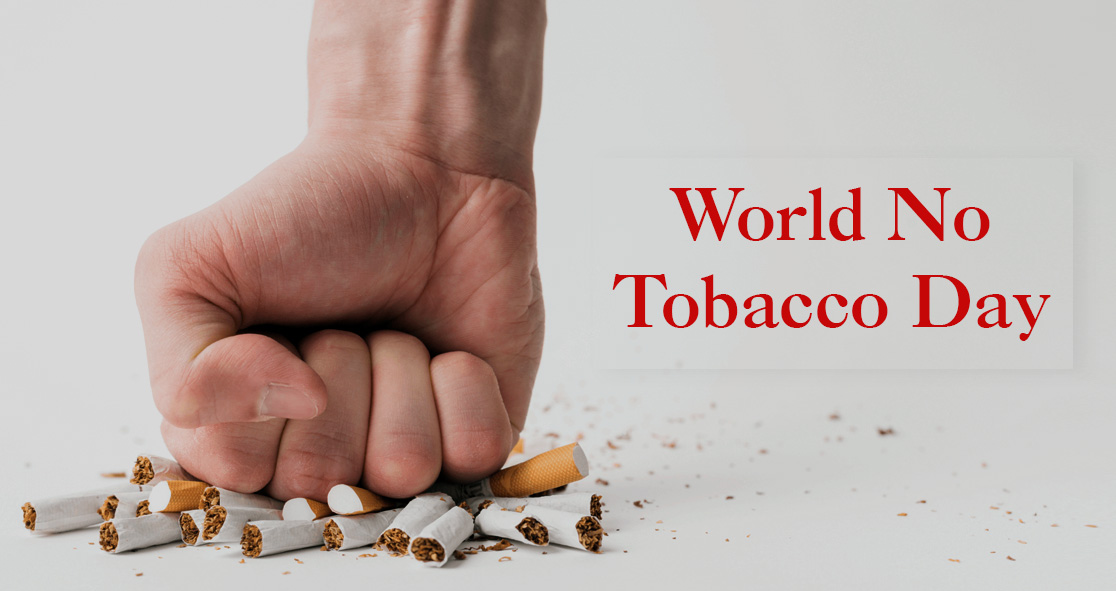The World Health Organization (WHO) says tobacco quitters are the real winner and this
The saying goes that “quitters never win,” but in the case of tobacco, quitters are the real winners. May 31 is marked as World No Tobacco Day and in this year’s campaign, the WHO has come up with a new theme called “Commit to Quit.”
Quitting can be a challenging task, but it is possible with adequate support. Since the pandemic began, most smokers are trying to quit tobacco because of growing evidence that smokers are particularly are at risk of developing serious COVID-19 illness.
With adequate professional support and cessation services, smokers and tobacco user can increase their chances of quitting successfully, according to the WHO.
The global health organization says that more than 70% of the 1.3 billion tobacco users lack access to the aids they need to quit successfully. And due to the ongoing pandemic, there is a lack of access because the frontline health workforce has been mobilized to handle the COVID-19 crisis.
To address that, the WHO has launched the “Commit to Quit” campaign, which aims to empower millions of tobacco users to attempt quitting by creating networks of support and increasing access to services proven to help tobacco users quit successfully.
And the agency believes that this campaign will be successful by bolstering current services such as brief advice from doctors, nurses, national toll-free quit lines, and launching innovative services like Florence (WHO’s first digital health worker), and chatbot support programs on Viber and WhatsApp.
E-cigarettes have not been proven to be effective cessation aids even after the tobacco industry’s continuous attempt to subvert these life-saving public health measures. In fact, new marketing tactics to promote e-cigarettes over the last 10 years attracted many children and teenagers, giving rise to vaping-associated pulmonary injury (VAPI).
There is no scientific conclusive evidence on e-cigarettes as an effective cessation aid. Switching from conventional cigarettes to e-cigarettes is not quitting.
WHO Director-General Dr. Tedros Adhanom Ghebreyesus said, “We must be guided by science and evidence, not the marketing campaigns of the tobacco industry – the same industry that has engaged in decades of lies and deceit to sell products that have killed hundreds of millions of people.”
E-cigarettes generate toxic chemicals, which have been linked to harmful health effects such as cardiovascular disease & lung disorders,” he added.
Every year, on this day, the WHO also presents awards to organizations and individuals who promote and enforce tobacco control, recognizing and commending their efforts and achievements while raising awareness and building support for tobacco-control measures globally.
This year, the agency recognized and appreciated the achievements of three Costa Rican institutions, the ministries of health in Saint Lucia and Paraguay, the Uruguayan National Resource Fund, two California cities, and a Brazilian doctor. They received awards for their global tobacco control efforts.
Stella Kyriakides, European Commissioner for Health and Food Safety, said, “The COVID-19 crisis has highlighted the vulnerability of smokers, who have up to a 50% higher risk of developing severe disease and death from the virus, a fact that has triggered millions of them to want to quit tobacco. But quitting can be difficult.”
“We can do more to help, and this is precisely what this year’s World Tobacco Day is about – committing to quitting,” she added.
Kyriakides, who is a Cypriot psychologist, noted, “We need to increase the motivation to leave smoking behind. Stopping smoking is a win-win situation at all ages, always. We need to step up our game and ensure that EU tobacco legislation is enforced more strictly, especially as regards sales to minors and campaigns on giving up smoking.”
“It also needs to keep pace with new developments, be sufficiently up to date to address the endless flow of new tobacco products entering the market,” she added. “This is particularly important to protect younger people.” “My message is simple: quitting is saving your life: every moment is good to quit, even if you have been smoking forever,” Kyriakides concluded.























